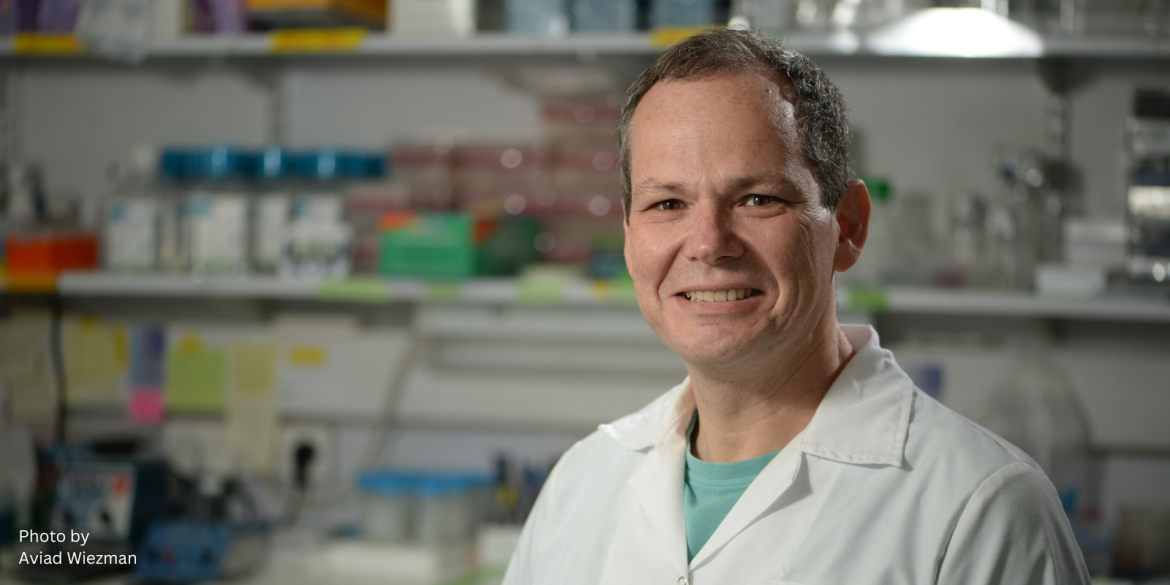
In one of our recent visits to the Ein Kerem campus, just days after the academic year had begun amidst the backdrop of war, we met Professor Eli Pikarsky, the new Dean of the School of Medicine, who assumed his role under particularly challenging circumstances on 8th October 2023. Before becoming Dean, Professor Eli Pikarsky headed the Pathology Department at the Hadassah Medical Center and served as a researcher in the Department of Immunology and Cancer Research at the Faculty of Medicine.
Alongside the challenges of managing an entire system of one of the Hebrew University’s esteemed faculties, Professor Pikarsky also faced other issues a week before the original semester opening: the immediate conscription of academic staff and many students into military service, alongside the decision to open the semester for very specific programmes: sixth-year medical school students including over 70 students in the flagship Tzameret track. This is likely the first academic program that resumed operating after the war broke out, while all other study programmes in Israel did not open.
In his vision, Professor Pikarsky sees a larger School of Medicine offering a wider variety of study programmes and specialisation options, more students in each study cycle, more physicians included in the faculty’s teaching staff and consequently, an expansion of physical infrastructure to accommodate all. “I aspire for the faculty to be and remain the best and largest in Israel, and for this we will need substantial financial support. Increasing the number of students will take four years, so I hope that by the end of my tenure, the next Dean will inherit a larger, more diverse and more expansive faculty.”
One of the creative and swift ways to increase the number of students this year was to admit 15–20 Israeli students who study medicine abroad and were called to reserved duty, who were offered the possibility to stay in the country and continue their studies within the School of Medicine at the Hebrew University. “The Deans of the medical faculties in the country decided to accommodate dozens of medical students who were conscripted for an extended period, and whose academic year was at risk of being cancelled. This was an important step especially when Israel’s healthcare system is in need of more physicians. As part of this scheme our faculty received more reserve soldiers than any other faculty in Israel.”
The Faculty has six teaching units: Medicine, Biomedical Sciences, Pharmacy, Public Health, Nursing and Occupational Therapy and Professor Pikarsky believes that every medical professional who adds additional knowledge complements the chosen path, creating synergy that contributes later to the community. “I aspire for our students and graduates to be agents of change in Israel’s medical world, which will be more inclusive and considerate towards patients. I would be pleased to open a group every year of twenty students opting for a longer route; they will add a year but gain more knowledge. For example, a candidate for a first degree could choose Biology, Pharmacy, or Nursing and then continue to a certified and doctoral programme. Another path could be Medicine, followed by a PhD, and then a return for clinical studies. It’s also possible to choose a bioethics track that can integrate with medicine, Nursing or Occupational Therapy.” Additionally, in Professor Pikarsky’s vision, the opportunity of opening 5-6 new study programmes, where 20–30 new students will be taught each cycle “We see the faculty’s focus, emphasising innovation in the medical world, efficiency, and knowledge.”
And of course, no discussion would be complete without a reference to a family coincidence – it transpires that Professor Pikarsky is related to a British Friends Trustee!
We wish Professor Pikarsky great success in fulfilling his role during this challenging time, and we would love to thank the previous Dean, Professor Dina Ben-Yehuda, for her exceptional service over the past six years.
